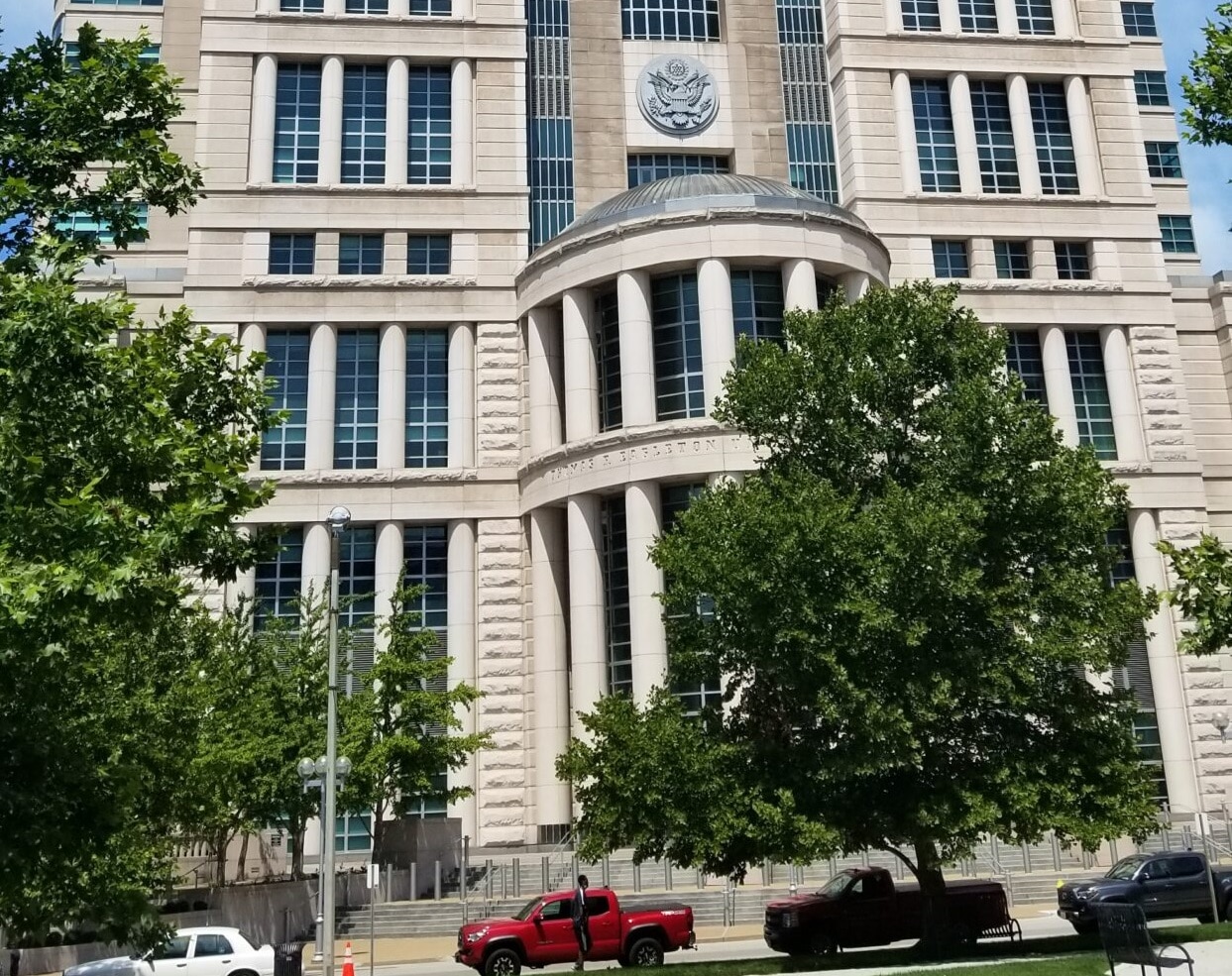ST. LOUIS (CN) — A lawyer representing a pair of men arrested under a wanted alert challenged the controversial system used by the St. Louis County Police Department at the Eighth Circuit on Wednesday.
Using the so-called "wanteds" system, police officers who wish to interview a subject can issue a statewide wanted alert for that person’s arrest by any other officer. The notice is issued by officers without approval of a neutral magistrate.
“What it is, your honor, is a desire to avoid doing the legwork" of getting a warrant, the plaintiffs' attorney Eric Alan Stone of Paul Weiss told a three-judge panel during a 30-minute teleconference hearing.
The panel began Stone’s time by asking him what the difference was between a wanted alert and a wanted poster used in the Wild West.
“The idea behind these orders, and this is undisputed, is that whenever a St. Louis County police officer wants to interview a suspect, he or she can issue an order that allows any other officer, not only in St. Louis County, not only in St. Louis City, but across the border in Illinois in several counties and elsewhere in Missouri, to take that person into custody so that they can be questioned by the issuing officer and I think that's actually where the wanted system runs afoul,” Stone said.
He noted that with an official warrant, a judge has established probable cause.
“This is the only place we know of in the country where a police officer issues an order by which some other officer can take someone into custody so the first police officer can come question them,” Stone said, “as opposed to so they can then be arraigned, charged, and criminally prosecuted.”
The panel grilled county attorney Frank J. Smith, Jr. over what gives police officers probable cause to issue the wanted notice by themselves.
“Under Missouri law, a police officer can make a warrantless arrest if he has reasonable grounds to believe that crime has been committed,” Smith said.
The judges pressed the issue, asking Smith if it is a risky proposition to have police establish probable cause without a judge’s oversight.
“It has its downfalls as well,” Smith said. “I think in situations that are here, I think the issuance of wanteds … were adequate as far as trying to make sure that a crime was committed or not committed in order to see that justice has been served.”
The panel asked Stone about the difference between a wanted notice and the FBI issuing a person-of-interest alert, as it had in the New York subway shooting that occurred on Tuesday.
“There's no dispute that where there is a person on the run, who was accused of shooting six people in a subway station, that that person can be taken into custody,” he said. “But the record evidence in this case is 15,000 Wanteds were issued for every claim in the book, the vast majority of which (did not affect) public safety.”
Dwayne Furlow and Ralph Torres filed a federal lawsuit in 2016 claiming the used of wanted notices violated their Fourth Amendment rights. They claim the U.S. Constitution guarantees that no warrant shall be issued without probable cause and that probable cause must be assessed by “someone independent of the police and prosecution.”
U.S. District Judge Henry Autrey dismissed the case, finding that the issuing of the notices adhered to the constitutional safeguards implemented by the U.S. Supreme Court, that the individual defendants had probable cause to issue a wanted alert for the plaintiffs, and that the defendants were entitled to qualified immunity.
The dismissal prompted Furlow and Torres to appeal to the St. Louis-based Eighth Circuit.
The plaintiffs say wanted notices act the same as warrants, but without the oversight. They allow subjects to be arrested, read their Miranda rights and often to be held in jail overnight.
In a brief filed with the appeals court, Furlow and Torres claim the St. Louis County Police Department issued over 15,000 wanted notices between 2011 ad 2016. Despite most of the county’s population being white, more notices were issued for Blacks than whites in 69 of the 72 months during that span.
“Being arrested is not only an inconvenience, it's a life changing event,” Stone told the court. “There is a reason we require an arrest warrant before we take somebody into custody.”
Furlow and Torres further claim there was no notification that a wanted alert had been issued against them and no mechanism to challenge it. The notices can remain in effect for years.
Smith pushed back on that claim during the hearing.
“They do have end dates,” the county's attorney said. “They usually will expire in the system, depending on the alleged transgression or crime that was committed.”
U.S. Circuit Judges Ralph R. Erickson and David Stras, both Donald Trump appointees, and Bobby E. Shepherd, a George W. Bush appointee, sat on the panel. The court took the arguments under advisement and a ruling is expected later this year.
Subscribe to Closing Arguments
Sign up for new weekly newsletter Closing Arguments to get the latest about ongoing trials, major litigation and hot cases and rulings in courthouses around the U.S. and the world.









